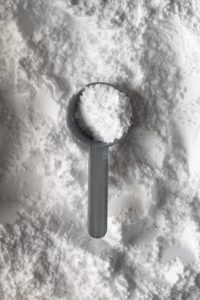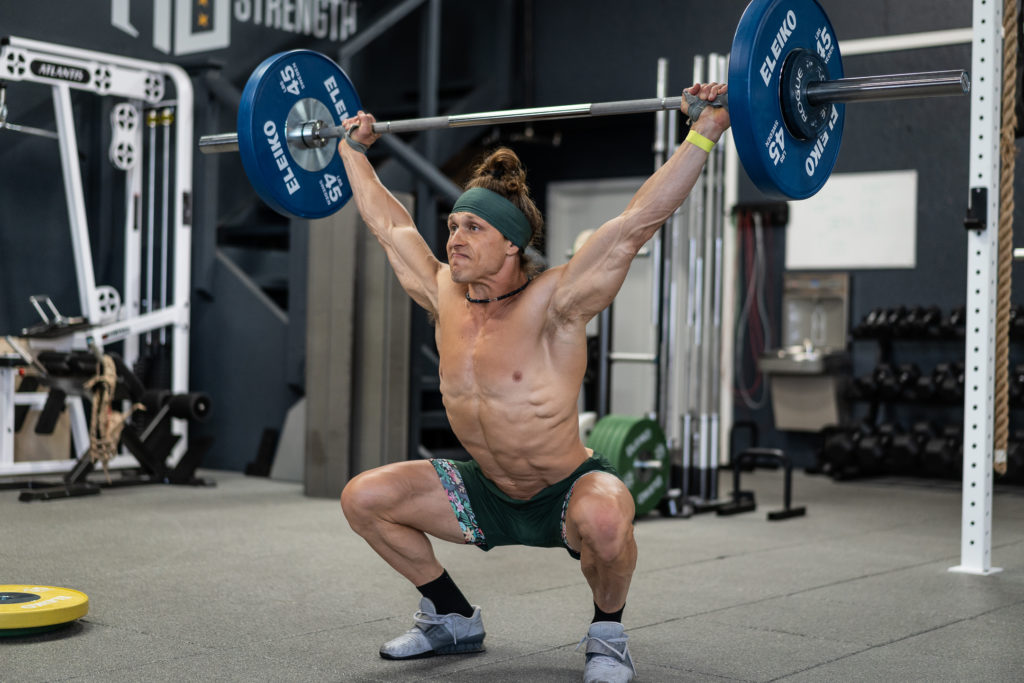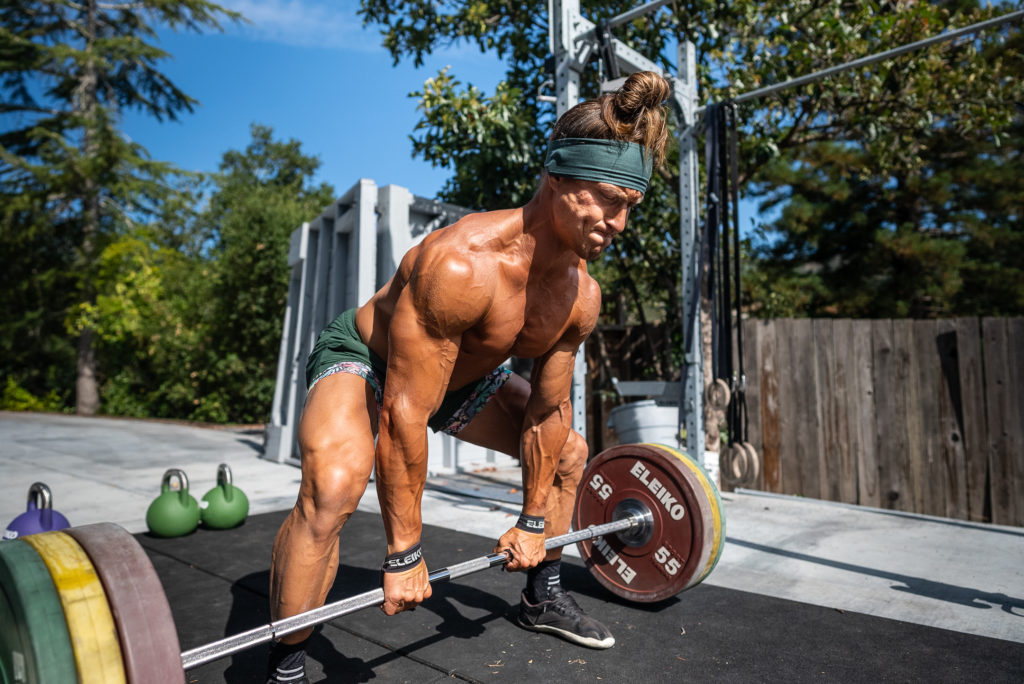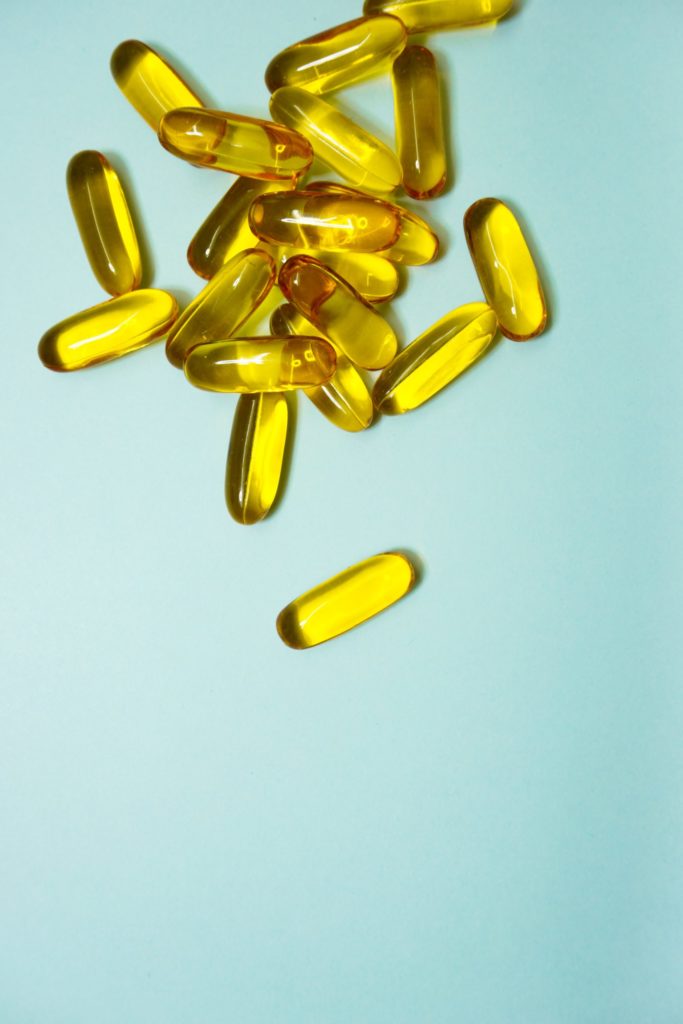- Messages
- 2,405
- Reaction score
- 1,431
- Points
- 113
WHICH SUPPLEMENTS SHOULD I TAKE?
Can supplements really help with muscle recovery, weight loss, or both? So many supplement brands compete for your attention, and there’s so much buzz about the latest and greatest pills. How does the average person just trying to be healthy know what’s worthwhile? Should you take supplements at all, or are you paying hundreds a month just to pee it all out anyway?
SUPPLEMENTS VS. WHOLE FOODS
We also covered these supplements in this Look Good Move Well podcast episode if you want to watch or listen.
In theory, a perfectly balanced diet provides the right amount of energy and micronutrients to keep us thriving.
But the reality for most people is that we don’t eat a perfectly balanced diet in the first place. The other reality is that most people aren’t even eating a moderately balanced diet. Instead, there are imbalances in macronutrients, energy intake, and micronutrient intake for a large percentage of people.
So start by cleaning up your diet before reaching for muscle recovery supplements. You have so much to gain from changing the foods you eat. It’s less expensive and more impactful to just get better food than to buy and consume a laundry list of supplements.
NUTRIENTS IN THE MODERN WORLD
If we go back to the theoretical perfectly balanced diet, one could argue it’s impossible in the modern day. The quality of food sources has been impacted over the past few decades. Modern agricultural and farming practices don’t yield foods that are as highly nutrient-dense as they once were. Furthermore, pollution contaminates foods and renders certain food groups, like seafood, difficult to consume in the quantities we might need. When we consume them, we trade off also consuming pollutants and heavy metals.So a case could be made that supplements for muscle recovery or other sport-specific needs, as well as general health, are necessary in order to thrive. I’m not here to argue one way or another.
Instead, what I would like to do is give you a very simple guide to the basic supplements that I recommend and why. Supplements outside this list can have a benefit or could be a waste of money. Unless you are trying to achieve very high levels of performance, or address diagnosed conditions, you probably don’t need to venture too far outside this list. But I’ll link you to a good resource for research below if you do want to do some investigation on your own.

DIET AND DEFICIENCY
What type of diet do you follow? Are you very intentionally removing food groups? Are you taking great care to ensure you are getting the necessary nutrients for muscle recovery that might not be easily attained from your diet?The more you restrict your diet or remove certain groups of foods, the greater the likelihood that you are creating a nutritional deficiency. A prime example is those who follow a strict vegan diet. You can get all your essential nutrients on a vegan diet. However, you have to be intentional about what food groups you pair in order to get your full complement of amino acids, for example.
Are you following a diet that intentionally removes groups of food (dairy, red meat, animal products, vegetables, etc.)? If so, it’s a good idea to consult with a nutritional practitioner from time to time to ensure you are getting adequate nutrients.
BLOOD WORK DETECTION
Additionally, anyone may consider getting blood work done periodically to assess the state of your nutrients.Many modern-day blood tests can be done through the mail or at a local center. They will let you know if you are deficient in Iron, B-Vitamins, Vitamin D, Omega 3 fatty acids, and more. Some of the supplements I’ll list today can be tested for to ensure you actually need them before taking them.
Today I plan to cover supplements that a high percentage of people could benefit from adding to their diet. They address what many of us don’t get enough of from our food and environment to optimize health and function. If you have questions about how much to take or what’s appropriate for you, consult with your health care provider.
PROTEIN POWDER
This is really more of a food than a nutritional supplement. Protein is a macronutrient that not only gives us energy, but also supplies the building blocks of many important structures in our body. Those building blocks are called amino acids, and we need a certain amount to thrive.The RDA (recommended daily allowance) is quite low for protein and isn’t sufficient for those who lead an active lifestyle with training. We often cite a recommended dose of protein each day at around 1 gram per pound of current or ideal body weight. This is more than 2x the RDA. When people switch to getting more protein in their diet, it can seem difficult to consume that much from whole foods.
Furthermore, if you are trying to keep your calories in check, it’s hard to add more protein without going over on carbs and fat.

HOW MUCH PROTEIN?
For these reasons, a protein supplement can be a great idea. In most cases, you get about 20 grams of protein per serving without added fat or carbs. Additionally, a protein supplement is super convenient for most people. If you want you can just add water, shake it up, and drink it on the go. This is helpful for those who have lower appetites or are not used to eating that much protein.Adding up to 1 gram per pound of bodyweight of protein can help improve muscle mass and strength, especially in conjunction with resistance training. Or try my free macro calculator for a more precise recommendation.
TYPES OF PROTEIN SUPPLEMENTS
Is one protein supplement or another best for muscle recovery? There are many different types out there. Whey, Casein, Egg, Pea, Hemp, Milk, Beef…. the list goes on. Each will tout their benefits over others. While some of these claims can be true, there is not one single best protein out there. Pick one that you like the taste of and will take consistently.Hitting your protein targets for 1 day won’t get you results. You need to do it every day. So make sure you like the taste of your protein, and you digest it well (no farts, bloating, burping, or diarrhea). Also make sure it’s the consistency that you like in your shake or oatmeal (however you end up taking it).
COLLAGEN - SPECIAL MENTION
You’ve likely heard of collagen protein. This is a type of protein that is found in higher concentrations in the skin, hair, nails, connective tissues, and digestive lining. If we consumed more nose-to-tail nutrition, then we probably wouldn’t need to supplement with collagen. That means eating more of the whole animal, including organs and gristle.But the reality is that most people eat muscle meat when they eat animal protein. Chicken breast, turkey legs, New York strip, and ground beef; are all muscle meat and lack collagen protein.
Collagen is important because it has higher concentrations of a particular amino acid called glycine. We need this to repair and build all the structures I mentioned above where collagen is found. Glycine boosts muscle recovery as well
Therefore, a case can be made for supplementing with some collagen protein each day. Collagen can impact skin elasticity and hydration, hair thickness, and connective tissue/joint health.
Now don’t make your entire diet exclusively collagen, since it lacks some of the essential amino acids in muscle meat too. Ideally you’d get a variety of amino acids regularly.
CREATINE
Creatine is the most well-studied supplement of all time. I get more questions about this supplement than just about any other. I’m glad people are asking about it, because I recommend it to a lot of people. It is generally safe for everyone. It can in very few cases cause some stomach bloating or digestive distress. If you have kidney dysfunction, then you should consult your doctor before starting up on creatine (and supplemental protein for that matter).People that take creatine can absolutely improve athletic performance and increase muscle mass. People also use creatine to treat certain brain disorders, neuromuscular conditions, congestive heart failure, along with some other conditions.
This is one of the best scientifically backed supplements, and has very clear implications in the strength and conditioning world.
A commonly discussed drawback is the retention of water weight and weight gain from taking creatine. This is likely blown out of proportion. How this works is that by supplementing with creatine, you saturate your muscle tissue with what is already naturally there, but in lower quantities.
When your muscle has more creatine in it, more water flows into your muscle cells. So the weight you would gain would all go to your muscles, producing a more full-muscle look. This is not FAT gain. The reality is at most 5 pounds of water weight gain in the muscles. That would only happen for a well-muscled individual that weighs a lot, to begin with.
A more realistic amount is probably .5-2lbs of water weight gain for most people. And remember, this is a good kind of weight gain in the muscle. Plus you get a performance and strength benefit from it that can make your training more impactful. It will also go away if you stop taking creatine.
How Long Does Creatine Take to Work?
It depends on how much you already have in your body. But generally, creatine will start to kick in between 1-4 weeks. Some people start supplementing creatine with a loading phase, taking 20g per day for about 5-7 days to reach saturation. Or you can simply take about 5g per day, which will get you there a little later.As creatine can cause digestive issues in some people, it’s up to you. But unless you’re in a hurry for a specific reason, the longer approach works just fine.

VITAMIN D
Just do a search for benefits of Vitamin D on google and you will land on a few very long lists. This fat-soluble vitamin is involved in many biological processes. We can get Vitamin D from our diet and we also synthesize it when our skin is exposed to sunlight.Vitamin D can help strengthen the immune system, and prevent certain types of cancer. It boosts your mood, lowers the risk of rheumatoid arthritis and type 2 diabetes, lowers blood pressure, and might reduce heart disease risk. With a list like that, why wouldn’t you want to take it?
The first reason not to take it is if you already have sufficient levels. This can be done on a simple blood test that you do from your home. Just search for at home Vitamin D level test.
The next reason might be to think about the cause of your deficiency first. If you aren’t getting sunlight each day, but you could be getting it, then it would be a good idea to start there. There are a lot of health benefits to sun exposure, and the Vitamin D production might be just one of those. Let’s not miss out on the others.
But if you are maxing our your sun exposure and your levels are still low, then a supplement could be a good idea.
FISH OIL/OMEGA 3

Our diets all consist of fatty acids. Some of those fats fall into a category called polyunsaturated fatty acids. There are 3 main types and they are Omega 3, 6, and 9. When we have the optimal ratio of Omega 3 and Omega 6 we start to crack the code on inflammation in the body.
Too much inflammation or too little is problematic. If we are deficient in Omega 3’s, we end up with inflammatory issues. It’s a common scenario for those that eat highly processed Western diets. This creates issues for the cardiovascular and neurological systems.
There’s strong evidence that Omega-3 fatty acids can positively impact our heart health by reducing blood triglyceride levels. They also raise our high-density lipoprotein (HDL, or “good”) cholesterol.
Additionally, a diet rich in fish or fish oil may prevent or moderate different mental health conditions. There is also preliminary evidence that Omega-3s may also serve as a neuroprotectant.
Eating animals that eat their natural diet (ie. grass-fed and grass-finished ruminant animals, wild-caught fish) can help optimize your Omega 3 and 6 ratios. Supplementing with fish oil can help this too.
MAGNESIUM
This mineral is a very important electrolyte that plays a role in many different bodily processes. It impacts hydration, hormone balance, bone health, energy production, stress responses, sleep, muscle relaxation and recovery, digestive health, and skin and joint health. It is also a mineral that many people don’t get enough of in their diet.It is therefore a good idea to supplement with Magnesium. There are many forms of magnesium that you can buy and they can have slightly different impacts. I recommend trying different forms. I like to take magnesium before bed for the sleep and muscle relaxation benefits. I take Magnesium Glycinate about 30mins before bed. I also use LMNT electrolytes* in my water throughout the day to get Sodium, Potassium, and Magnesium in ratios that are optimized for hydration.
The most reported side effect here is digestion related. If you take too much magnesium, you may want to stay close to a toilet. It can cause a bit of gastric motility and loose stool.
* LMNT is one of my sponsors
PROBIOTIC OR FERMENTED FOOD
I’ve only had a few supplements in my life have an immediate and very noticeable impact. One of those was the first time I took a high quality probiotic in pill form. I had been suffering from bouts of poor digestion. The morning after taking my first dose of this supplement I had the best poop I had had in years. It was definitely an aha moment for me.Probiotics and fermented foods deliver bacteria into your digestive system. We have trillions of bacteria living in our guts that can support or hinder digestion and health. The simple idea here is to supply our guts with the good kind of bacteria. Then the bad ones don’t take over and get all the real estate.
A diverse bacterial population in the gut will help you digest food better, absorb more nutrients, and reduce inflammation at the gut level.
This is why I have yogurt, kefir, and fermented veggies in my diet regularly. In addition, I take a probiotic in pill form from a company called SEED. I do recommend rotating probiotic companies occasionally if you take them to get diverse bacteria.
I hope these recommendations and this discussion about supplements help you navigate the supplement aisle a bit easier. Remember that you stand to benefit substantially from improving your diet overall first. Once you are in the moderate to good range of dietary balance, you can definitely stack some more wins with the basics in the supplement world.
You will only experience value if you are consistent with these things over long periods of time. Don’t expect to have the PERFECT POOP tomorrow, or a similar experience with creatine, as an example.

